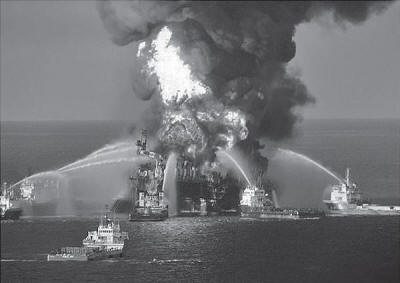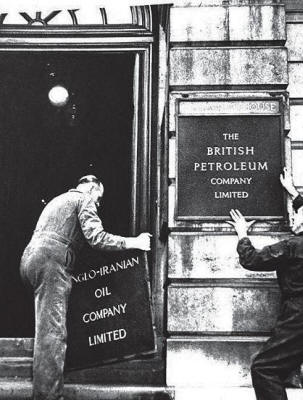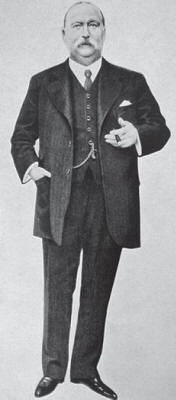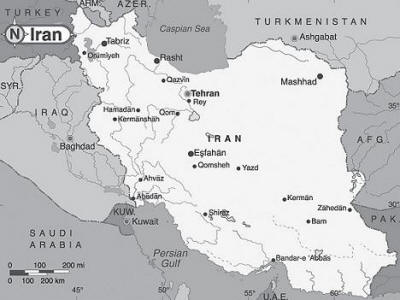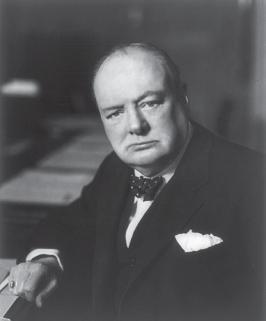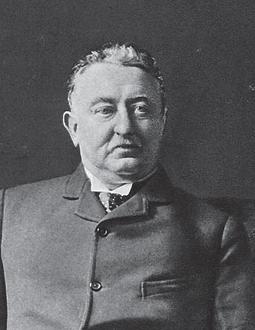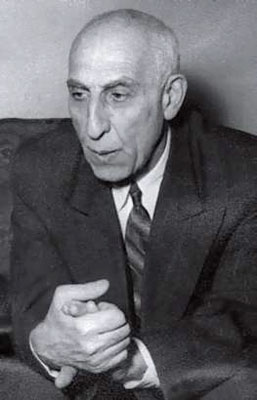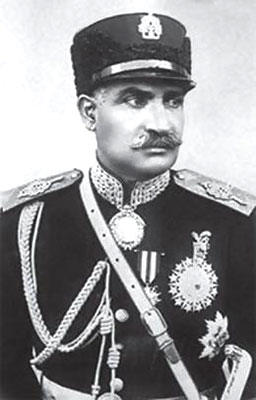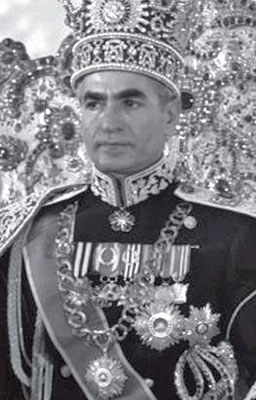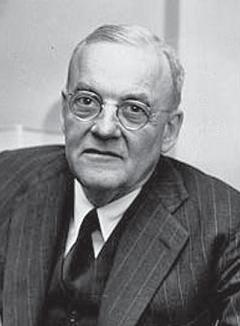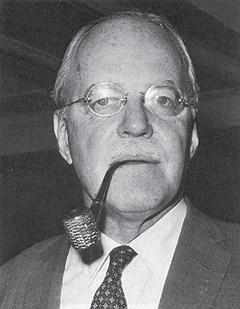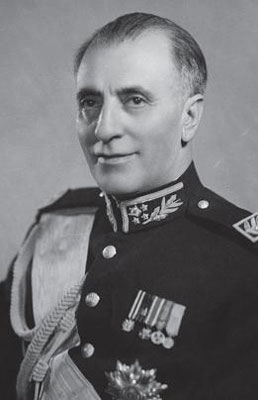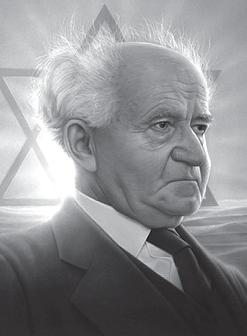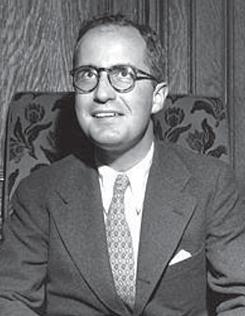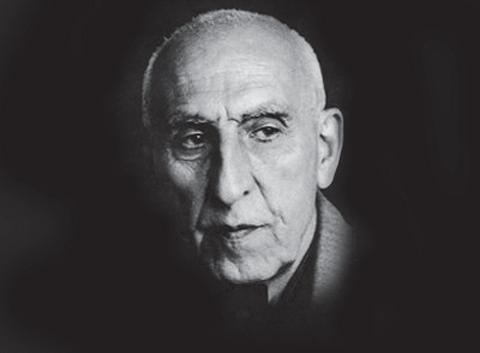|
In the light of British Petroleum’s grotesque crime, as yet unfinished, against humanity in the Gulf of Mexico, it is well to recall briefly BP’s no less hideous crime perpetrated in its earlier incarnation as the Anglo-Persian Oil Company (APOC) and, later, the Anglo-Iranian Oil Company (AIOC).
At the turn of the 20th century, William D’Arcy, financial tycoon and politician, pursuing the advice of his financial associate and empire builder Cecil Rhodes, frantically began his quest for oil in the Persian Gulf.
Little did they realize that one of the most dazzling El Dorado in the long and tortured history of British imperialism would soon be born. Geopolitically it would have reverberations well beyond the Persian Gulf region.
It was one of the most decisive steps in the march of imperial globalization, accelerating the concentration of capital and the imperialist rivalries that are its normal concomitant.
William D’Arcy In 1908, D’Arcy’s quest was consummated with one of the biggest oil discoveries of all time, and APOC was established a year later.
The British government would subsequently
gobble up a sizeable chunk of the total shares in APOC. It was only
decades later that BP was privatized by Thatcher.
The reverberations of the production and marketing of this commodity - earlier labeled black gold by Rockefeller - at a moment when imperialism’s first major holocaust, the Great War (1914-1918), was about to erupt revolutionized the world economy.
APOC’s ascendancy owed nothing to the free play of market forces idealized by mythmakers of economic liberalism, but to the role of Big Capital and the thrust of imperial financial power for enhanced control of world markets.
Like the earlier conquests and brutal territorial annexations of Cecil Rhodes, it signalized the marriage of Big Capital and the imperial political-military complex.
The pivotal actor in this compulsive planetary drive to market supremacy and control was Winston Churchill (1874-1965), soon to become First Lord of the Admiralty.
Winston Churchill
Cecil Rhodes As with Rhodes’ earlier African conquests - from the Cape to Cairo - Churchill (a personal friend of both Rhodes and D’Arcy’s) grasped immediately the potential of APOC to alter the balance of geopolitical power in favor of British imperialism, which was then facing the life-and-death challenge of German imperialism.
It proved a major catalyst in the enhancement of
the global reach and unchallenged supremacy of the Royal Navy and
the British merchant marine.
Not only was it a prodigious source of
accumulation for the entire British ruling class but it also fanned
the already raging fires of inter-imperialist rivalries. Imperial
Germany’s drive into the Ottoman Empire’s backyard was checkmated
and pushed back. The Royal Navy successfully blockaded oil supplies
to Germany when the war was unleashed.
With huge British government
subsidies, that is, the taxpayer’s money, APOC acquired the world’s
largest tanker fleet; it came to dominate the entire oil market from
pit head to the retail pump. British imperialism was to reap the
benefits of its victory over its imperialist rivals in all ways and
APOC was one of the vital catalysts in this battle for the conquest
of world markets.
This colossus of British imperialism, like its
contemporary American counterpart, the United Fruit Company (born in
1898), came to enshrine the rapacity of imperialist hegemony. As
with UFC, its corporate existence was to be soaked in blood,
political intrigue and manipulation of the highest order.
Dozens were wounded. It was at this point that MI6, the British foreign intelligence agency, began its close working relationship with the company.
Many of the strike leaders and militant workers who slipped through the gauntlet were arrested and tortured in prisons located on the premises of the oil fields. APOC had taken the leap into sustained state terrorism, as had the masters of the Colonial Office and British imperialism. The Rubicon had been crossed.
But what the APOC/MI6 duo could never have
imagined were the long-term revolutionary reverberations that these
well-coordinated and organized strikes would engender.
More than a thousand men, women and children were killed.
Of course the anti-colonial
revolt and battle for freedom had begun earlier with the Easter
Uprising (1916) in Ireland that was acclaimed by Lenin and
throughout the colonial world.
This act of imperial butchery was, in Dyer’s arrogant words,
But
that power would be challenged not only in the Indian sub-continent
but universally.
Their political mission to Moscow in that decisive year was of revolutionary significance as it blueprinted the party’s central theses, which were nationalization without compensation of the entire productive and marketing operations of APOC and its infrastructure; expropriation of the large landed estates; the democratization of the armed forces and the creation of worker/peasant militias.
The struggle against APOC
revealed the first fledgling roots of the party’s internationalism.
Churchill and
the masters of APOC grasped the revolutionary significance of this
new politico-ideological orientation. That was not too difficult
given the international revolutionary context, and the fact that
foreign imperialist powers were waging a life-and-death struggle to
annihilate the emergent forces of the October Revolution whose
existence threatened the existing order.
APOC published and distributed thousands of pamphlets fulminating that the party’s blueprint for the overhaul of existing property relations would be an onslaught against Islam. It would inexorably lead, given the corollaries of their policy inferences, to the extermination of the landed aristocracy, the monarchy and private property and wholesale destruction of law and order.
Such were the ideological onslaughts that would endure until the ouster of Mossadeq decades later.
The party was attacked on all fronts. The incipient trade union movement was victimized but never successfully undermined, as subsequent decades revealed. The military, seeing the potential threat that the party and its freedom manifestos posed to its class privileges and prerogatives, was instrumental in imprisoning hundreds of party members and those suspected of "seditious conduct", in the language of Reza Shah Pahlavi.
State terrorism had now become a grim and
present reality.
This was understandable because Mossadeq was a landed aristocrat who earlier coddled the utopian illusion that APOC could be persuaded to agree to some sort of profit sharing and equitable marketing arrangement. He was what I called a reconciliationist, a believer that the sheep and the wolves could peacefully coexist. It was a perspective shared by Chile’s Salvador Allende; the upshot we all know.
Let me say in parenthesis that I had a long interview with Allende a short time before his life and delusions were shattered by the bullets and the jackboots of the Pinochet/Kissinger coup.
Mohammad Mossadeq This was proof sufficient that Mossadeq, a well-intentioned Western-educated bourgeois intellectual, had never been fully unshackled from the cultural stranglehold of imperialism (a theme that Edward Said analyzed perceptively in his chef d’oeuvre, Culture and Imperialism).
As a self-styled nationalist, Mossadeq’s goal in the 1920s and early 1930s was never to effectuate changes in the social propertied relations of Iran. That was true in relation not only to the monarchy and the landed estates but also to APOC. He strenuously believed that reason could prevail and that capitalism was an economic engine susceptible to modification, that is, to becoming more humane.
He failed to
understand the Gandhian truth that there could be no such thing as
"equality between unequal".
As General Fazlollah Zahedi, his Interior Minister and later the hatchet man who demanded that he be hanged after the successful putsch, would say:
The advent of Nazi-oriented parties in Iran deepened Mossadeq’s insights of the dynamics of imperialism and its domestic stooges.
He had ceased to live in a cocooned world. What was important was that as an acute intellectual, a citizen of a quasi-colonial country who traveled widely within Iran, the Middle East and Europe during those years of ascendant fascism and brutal colonial repression, Mossadeq grasped the significance of the changes then shaking the colonial world and the nature of European fascism.
He came to realize that fascism, despite its parliamentary and non-parliamentary variants, was a bulwark of imperialism and the racism that partnered it. His theoretical insights were soon to be metamorphosed into concrete policy directives.
The Great Depression, trailed by the collapse of commodity prices and mass joblessness on a scale unprecedented in capitalism’s history, brought him closer to the resistance movements in the colonial world. India became a formative influence in his thinking and the nationalist policies that flowed from it.
His encounters and lengthy exchanges with such legendary
nationalist resistance leaders as Nehru, Gandhi and, above all,
Krishna Menon were of decisive importance.
True, Mossadeq shifted ideological gears in
the crisis-strapped 1930s, but it was a radicalization or rather
conversion that stopped short of hammering out a full-blooded
militant working relationship with the Iranian Communist Party. (The
latter renamed itself the
Tudeh Party in l941.)
The anti-fascist coalition gave a new impetus to the resistance struggle. Oil was being marketed to the Soviet Union for the first time despite AIOC’s stiff resistance. Tudeh’s new strategy was to resist calls for precipitous nationalization.
Its central goal was to extend its organizational power base throughout the country by mobilizing the industrial working class and the peasantry, and making deep recruitment inroads into the armed forces.
Reza Shah Pahlavi
Mohammed Reza Pahlavi This policy orientation moved in tandem with closer collaborative work with Mossadeq’s National Front. This new turn was masterfully summarized in a proclamation by Tudeh’s Central Committee.
Couched in a language of moderation, it was nonetheless interpreted by the ruling class, AIOC and imperialism as signaling the liquidation of AIOC and the end of Britain’s influence:
Although he would return later to Iran from his forced internment in
Cyprus, the voices of the likes of General Zahedi, a paid Nazi agent
and a servant of AIOC, were momentarily stilled. But he would
surface again to execute his counterrevolutionary goals at the end
of the war.
On the first of May - and the choice
of date owed nothing to chance - more than 50,000 workers, members
of the armed forces, intellectuals and peasants that comprised a
large contingent of women massed in front of the Majlis to give
their support to the nationalization of AIOC. It was a victory that
went well beyond the confines of Iran for it was the first
successful manifestation of the anti-imperialist struggle.
A frontier of 1,000 km had now been liberated. Supplies from the USSR and China would now boost the offensive capabilities of the Viet Minh in Indochina. One of his closest aides told me that Mossadeq took time to study the unfolding events in Indochina notably through his systematic study of the excellent day-by-day reports in Le Monde.
His interest or, better
still, ideological commitment extended to all of South-East Asia.
His battle with imperialism had propelled him into the front ranks
of the leadership of the anti-colonial struggle.
This flight of eloquence is seen in what would become a manifesto of economic and political freedom:
The rapturous acclamation of the masses drove home to the masters of AIOC and the British Colonial Office that these were not frivolous words on the part of an opportunist politico begging for crumbs from the white man’s power structure and who believed that their conquests and pillage were things of fixity and permanence.
Rather,
they were a direct and powerful blow to the vitals of imperialism.
Indeed, in my view, this was one of the mightiest anti-colonial
manifestos that had ever been penned.
The British government engineered a series of repressive measures or, in the contemporary lingo of Hillary Clinton, "crippling sanctions" aimed at toppling the government. It warned tanker fleets that they would not receive payments from British and European banks if they marketed Iranian oil.
(The loss of Iranian oil was offset by the
boosted production in Saudi Arabia, Kuwait and Iraq. That was
comprehensible since Saudi Arabia was a hostile enemy of Mossadeq’s
reforms.)
The British Royal Navy imposed a blockade on the
entire Persian Gulf. The USSR, for reasons of its own internal
policy considerations and to mollify Churchill, the United States as
well as AIOC, gave no succor to Iran in its moment of dire need.
Mossadeq’s discourse at the Council session in October 1951 was one of the most tragic utterances of a country that was being raped and pillaged and striving to retain its dignity:
What Mossadeq has bequeathed us is a portrait of imperial genocide seen in the stricken soul of one of its most legendary victims.
This damning indictment of one of the most brazen criminal corporations of all time has never, in my view, been more succinctly portrayed. There was no respite in the offensive against the progressive and nationalist forces led by Mossadeq. The counter-revolutionary putsch was gathering steam. Churchill, who had been in the counter-revolutionary business since 1917 and whose hatred of revolutions and of colored peoples was legendary, recognized that a bankrupt Britain was incapable on its own of pulling down the Iranian government.
He pleaded with Eisenhower, who didn’t need too much urging, in the name of the US-British,
This was a manifesto of political genocide.
It left nothing unsaid.
In the corridors of imperial power in Washington the
all-too-familiar Churchillian babble, recycled for decades and distillated
in the Fulton Declaration (1946), found an echo in the now
militantly expansionist circles of corporate imperialism underpinned
by the political/military oligarchy in the United States.
In 1951 President Jacobo Arbenz (1913-1971) scored a crushing electoral victory
against the entrenched forces of the Guatemalan oligarchy,
the Roman
Catholic hierarchy (one of the biggest landowners in all of the
Americas) and its Gringo backers. One of the major planks of his
agrarian reforms - "the mildest of the mild" - empowered his
government to expropriate uncultivated land of the oligarchy and the
multinational food companies.
One of the biggest latifundistas (landowners) in Guatemala (and indeed in all of Central America) was the United Fruit Company headquartered in Boston. Its shares were owned by most members of Congress and the Senate, which vastly contributed to its political leverage.
One of its major shareholders and political backers was John Foster Dulles (1888-1959), later Secretary of State in the Eisenhower administration that came to power in January 1953 - a year of pivotal importance, as we shall see, in the history of Iran. His brother Allen Dulles, who would play a paramount role in the butchering of Iranian democracy, became head of the Central Intelligence Agency (CIA).
After the CIA-orchestrated eradication of the Arbenz administration in 1954, Allen Dulles became the chairman of the board of United Fruit.
Indeed, the Dulles family had been among the largest stockholders of UFC since the 1920s.
John Foster Dulles
Allen Dulles By the start of January 1953, the offensive against Iran was well underway.
Operation Ajax, as it was codenamed, was engineered to axe the legitimately elected government. It would be the precursor of several such crimes against humanity in the years and decades that followed.
By temperament and
his unbendable ideological propensity to aggrandize the sphere of
imperial conquests in the Middle East and grab its oil resources,
the choice of Kermit Roosevelt Jr. (1916-2000), a long-serving CIA
professional agent, to direct Operation Ajax proved ideal. A fact
repeatedly acknowledged by his mentors, the Dulles brothers.
From this he drew the inference that the CIA was the most appropriate institution,
He was a symbol of the moneyed East Coast establishment; a WASP (White Anglo-Saxon Protestant) educated at Groton and Harvard.
His first postings to the Middle East had reinforced his earlier
connections with the tycoons of Big Oil and the Wall Street bankers
- connections that he nurtured until his death. In short, his
credentials for the political and human genocide that he was now to
trigger were unblemished.
He had personally recruited his fellow criminal conspirators from the Iranian army and upper Shia clergy, members of MI6 with American passports and members of AIOC. One of his most ruthless co-conspirators (dubbed the Iranian Himmler by his Iranian military associates) was General Zahedi, former Minister of the Interior in Mossadeq’s cabinet. Zahedi, as an animal that had fed from many troughs, had long been on the payroll of AIOC.
The rope, as an MI6 conspirator jubilantly noted, had been slung over Mossadeq’s neck but the trapdoor remained to be sprung.
General Fazlollah
Zahedi A special plane chartered by AIOC had brought the exiled Shah back from Rome. Allen Dulles was on that plane.
As Zahedi later said:
He was right in a way, but for Dulles the sum of $5 million sprinkled across the spectrum to a wholly corrupt band of gangster politicians was piddling as the gains, both financial and geo-strategic, to imperialism would subsequently run into the tens of billions.
Mossadeq was arrested on 19 August 1953 and hauled before a military tribunal. Treated as a traitor and a criminal, he was tortured and kept in solitary confinement until 21 December.
His prison term was subsequently extended to three years of incarceration followed by house arrest until his death in 1967.
Once again he was on target.
That was, however, a non-issue for the yellow corporate
press. The repression bore striking similarities to Pinochet’s
Chile, save that it was on a far vaster scale. The entire nation was
blanketed by Savak, which became the highest-paid and most
privileged thugs of the Shah’s Anglo-American-dominated empire.
The joys of Ben Gurion stemmed not only from cheaper oil but also from other, political factors.
As the historical record reveals, Mossadeq and Tudeh had vigorously articulated their hostility to the mass expulsion of Palestinians from their homeland and the savage colonial occupation that followed.
David Ben Gurion Savak became the training ground for mass murderers and torturers.
Training camps were swiftly set up
within Iran and in Israel as well as in that institution of mass
genocide that was the School of the Americas in Panama. Genocide
Inc. in Iran had now been globalized.
The Shah’s tyranny continued its march of unrelenting terror
until it was ignominiously crushed in 1979.
By market capitalization (1979) BP had become the world’s fifth largest company.
Kermit Roosevelt Jr. Roosevelt had achieved the acme of his sordid career. He was the prototype of the war criminal spawned by the CIA, Mossad and MI6.
The Shah’s groveling gratitude towards these killers, including Mossad, epitomized his euphoria in the aftermath of 19 August:
It is wholly irrelevant whether the Shah was capable of drafting these lines or whether they were written by one of the foreign hangmen of the Iranian people in their embassies.
But there was more
to it than this fatuous piece of verbiage. Roosevelt’s colossal
personal pickings were now bounteously displayed on the table for
the world to see. His victims’ bodies were not among his newly
acquired trophies. Among his honors were the Peacock Throne’s
highest military and civilian decorations, to which was added an
annual pension of $25,000 (and a lump sum of $1 million) which he
received until the end of the regime in 1979.
What he did not decline, however, was the manna of $500,000
from the British government (the biggest shareholder in BP at the
time) and BP. Overnight he metamorphosed into a big-time investor in
BP, whose lush profits now rocketed to the stratosphere in the
aftermath of the political coup. His destiny remained linked to the
perpetuation of Big Oil.
He enshrined the unity of political power at its highest peaks and the financial exigencies of imperial aggrandizement. And hence he became a recipient of the highest award for US spies, the National Security Medal. Present at the ceremony in the White House were President Eisenhower himself, who had earlier stealthily refused to acknowledge his connections with the planned coup, the Dulles brothers, the head of MI6 and the head of BP’s operations in the Middle East.
This was the grand galaxy of imperialism.
What we do know is that his overthrow did not end his militancy and what I would call his unbending faith in the unfolding revolutionary process.
Mohammad Mossadeq He followed events intensely and, as several of my friends and informants noted, his singular regret was that he had not followed Tudeh’s injunction for arming the peasantry and the urban masses.
In short, the direction of armed struggle. In the living room of his residence hung a large portrait of Ho Chi Minh which he refused to remove when ordered to do so. He followed, up to the end of his life, the liberation struggles (and repressions) in the colonial world.
The triumph of Cuban freedom in January 1959 happened to be one of his greatest joys, proof of his internationalism.
Even as the Iran of today and its democratically
elected government face the threat of physical liquidation by the
combined forces of Zionism and imperialism, the struggles and
aspirations of this great humanist and architect of freedom will
remain, to all who strive for justice and decency, forever green.
|

